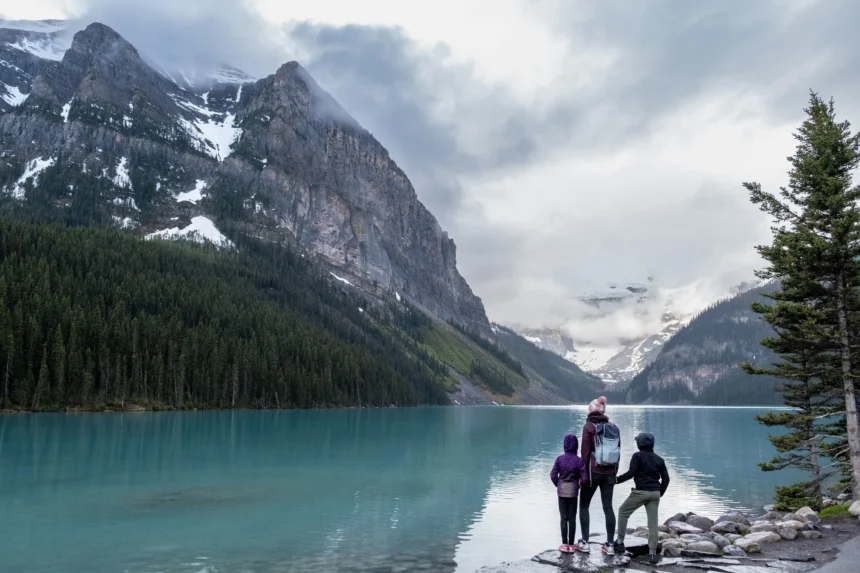Canada is a country that welcomes millions of travelers each year with its wide-open landscapes, clean cities, and easygoing atmosphere. From coast to coast, there’s a lot to see and experience, from big city culture to quiet mountain trails. While most trips go smoothly, it’s still smart to take some basic precautions along the way.
Knowing a few safety and wellness tips can help you avoid small issues that might otherwise disrupt your plans. It doesn’t take much effort to travel smarter. Besides, doing so can make your time in Canada feel more relaxed and worry-free. So, here’s what you need to know.
Stay Equipped for Unpredictable Weather
Canada is known for its diverse weather, which can vary dramatically depending on the time of year and region. In the winter months, temperatures in many provinces drop well below freezing. Heavy snowfall is common, especially in central and eastern Canada, and storms can delay travel plans.
In the summer, some areas may be hot and dry while others are cool and rainy. Dressing in layers is one of the best ways to prepare for changing conditions. Always check the weather forecast before you head out for the day, especially if you’ll be outdoors for long periods.
Be Cautious Around Wild Animals
Many visitors are drawn to Canada’s natural spaces with the hopes of spotting wildlife. Bears, moose, deer, and other animals are common in forested areas, especially out west and up north. While it’s exciting to see them in their natural habitat, it’s important to keep a safe distance, for your safety and theirs.
Stick to marked trails and stay alert while hiking in wooded areas. In some regions, it’s smart to carry bear spray and learn how to use it. Keep food sealed and garbage secured to avoid attracting animals to your campsite or picnic spot.
Be Prepared When Driving in Unpredictable Conditions
Road trips across Canada can be beautiful, but driving here requires a bit of preparation. Weather can shift without warning, especially during winter, when ice, snow, and fog make roads harder to navigate. If you’re unfamiliar with these conditions, it might be better to join a tour or use public transportation.
Keep your fuel tank at least half full when driving through rural or remote regions. Gas stations may be few and far between. Use maps and road apps to track closures or hazards, and always follow posted traffic rules.
Keep Up Your Water Intake and Rest Regularly
Travel can be tiring, especially when adjusting to a new time zone or climate. Long flights, packed schedules, and physical activities can cause fatigue and dehydration. Carry a reusable water bottle and take breaks often, even if you feel fine.
Staying hydrated is especially important if you are hiking, walking long distances, or spending time outdoors. Balanced meals and proper rest will help you stay energized and alert. Avoid skipping meals or overexerting yourself just to stick to a tight travel plan.
Watch Over Your Valuables
Canadian cities are generally safe, but no place is completely free of petty theft. Keep your personal items secure in busy areas like shopping centers, train stations, or tourist attractions. Choose bags with zippers, and don’t carry large amounts of cash.
Use your hotel safe to store important documents, extra cards, or valuables. If you’re carrying a passport, keep it on your person in a secure pouch or inside a zipped compartment. It’s also a good idea to carry a copy of your ID and keep digital versions backed up.
Stay Connected While Traveling
Staying connected makes travel smoother and safer. You may need to check directions, translate signs, contact services, or reach out for help in unfamiliar areas. A canada data esim offers an easy way to access mobile data without needing a physical SIM card. With it, you can access online maps, message services, and travel apps wherever you go. This is especially useful in areas where public Wi-Fi is limited or unreliable.
Watch for Natural Hazards in Outdoor Areas
Hiking trails, lakes, and mountain roads can offer incredible views, but they also come with risks. Flash floods, sudden snowstorms, and rockslides are possible in certain regions. Before heading into nature, check with local tourism offices or park rangers for any alerts or safety tips.
Bring appropriate gear, such as proper footwear, a first aid kit, and enough food and water for your trip. Stick to marked paths and tell someone where you’re going if you plan to explore on your own. Weather and trail conditions can change quickly, so staying informed is essential.
Canada is an incredible destination that offers safety, beauty, and a friendly atmosphere for travelers. Paying attention to your surroundings and planning for unexpected changes can help you get the most out of your trip. Staying connected with a canada data esim and taking care of other factors mentioned above can make a big difference. When you’re prepared, travel becomes more about discovery and less about stress. Enjoy the journey and make the most of your time in this beautiful country.


